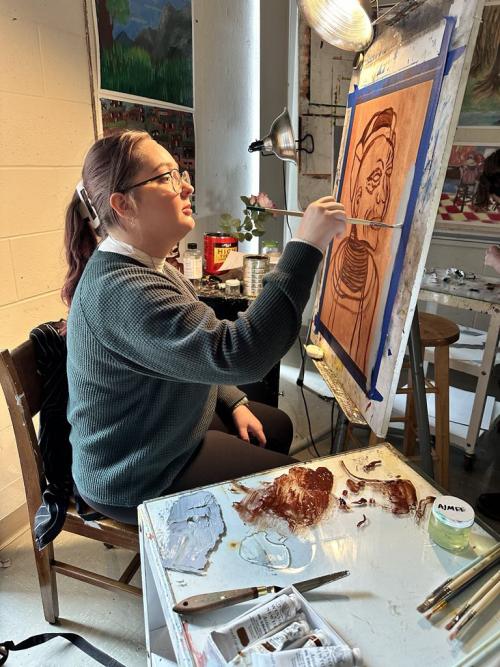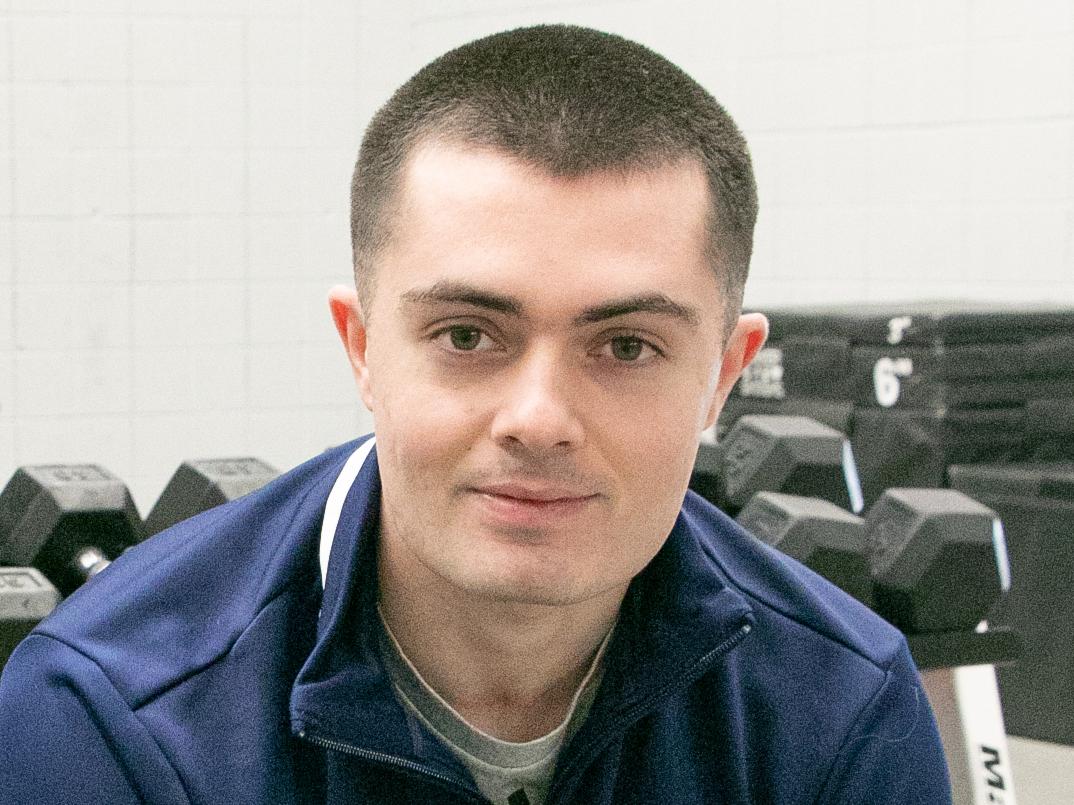It seems like Viterbo University’s Ethics, Culture, and Society (ECAS) major was made just for Meredith James, and the senior from Green Bay has made the most of it. She has custom-designed an educational path that fits her interests and aspirations, helped create a new bioethics internship, traveled to South Africa, and as a junior presented at the annual meeting of the American Society of Bioethics and Humanities in St. Louis.
Viterbo launched the ECAS program in 2020, basically an interdisciplinary build-your-own-major combining courses from two academic areas with a focus on collaborative problem-solving for the common good. It’s similar to a liberal studies major, but with a strong emphasis on advocacy and social change.
When James came to Viterbo after graduating from Notre Dame de la Baie Academy in 2021, she knew she wanted to study philosophy. She’d already done a deep dive into philosophy in high school and was particularly drawn to the work of British philosopher Bertrand Russell.
At first, James was thinking about going to law school, a common next step for ECAS majors. But an interest in medicine, inherited from her physician parents, combined with her love of philosophy drew her to the field of bioethics.
“It combines medicine and thinking, two of my favorite things,” James said. “My personal motivation is that I believe health care should be a right, not a privilege.”
James chose philosophy and art (she loves oil painting) to be her two areas of academic focus for her ECAS major, and added a biology minor because of her interest in bioethics.
Internships are an important part of being an ECAS major, so James took action when she realized there were no existing local internships in the field of bioethics. She left a voicemail for Thomas Harter, a bioethicist at Gundersen Health System.
“I basically told the man I wanted his job,” James said.
Harter got back to James within an hour and set up a time the next day to talk. Their conversation, which went on for three hours, resulted in Harter working with ECAS Professor Matthew Bersagel Braley to set up a new year-long bioethics internship.
Her first semester in the internship involved a lot of job shadowing. She immersed herself in Harter’s work, of course, but she also got a chance to do rounds with med students, spend time in the intensive care and critical care units, talk with doctors about surgical complications they’ve encountered, and follow the “street medicine” team that serves as a mobile clinic for the area’s unhoused population.
It was the experience with the street medicine team that inspired the research she did for the second semester of her internship, partly because of her sense of justice and partly because it was blazing a new trail. “The research on this topic is scarce,” she said.
As a longtime active member of the American Society of Bioethics and Humanities, Harter suggested that James apply to present her research at the organization’s annual conference and worked with her to help ensure her application was successful.
In September, James and Harter went to St. Louis for the ASBH annual conference, where she gave a presentation titled “Band-Aids and Bridges: Ethics, Risk, and Serving Our Most Vulnerable.” Her talk drew from her research, looking at the dynamics of the patient-doctor relationship in street medicine, where physicians don’t have the same dominance in the power balance that they have in a clinical setting.
Her audience was largely made up of professionals with doctoral degrees, which at first was a “terrifying” prospect for James. “I felt really, really young and sort of out of place,” she said. “I was probably one of the only undergraduates at the conference.”
She got through the talk in impressive fashion and is now working with Harter to turn her research into a paper to be published in a scholarly journal. Accomplishing that would certainly help her gain admission to graduate school to continue her bioethics studies.
This year another Viterbo student is doing a bioethics internship with Harter, an opportunity they wouldn’t have had if James hadn’t taken the bold move of calling Harter, Bersagel Braley said, and the experience James had as an intern will prove invaluable to her.
“It’s a pretty big deal for an undergrad to collaborate with someone in the field and present at a professional conference,” Bersagel Braley said. “Meredith’s internship became a critical piece of taking what she learned in the classroom, adding to it, and then bringing it to the real world.”




